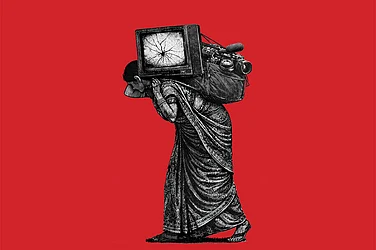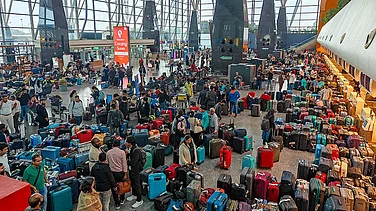The Union Information and Broadcasting Ministry has said that the big tech should share revenue with digital news publishers.
Citing examples of countries like Australia and Canada, Union I&B Ministry Secretary Apurva Chandra said it is important digital publishers get fair share of revenue generated by the big tech from hosting the news content.
In Australia, the government made a law that mandated companies like Facebook and Google to pay news publishers if they wish to host their content.
Here we explain what the Union government said, what's the law in Australia, and what's the idea behind such a law.
What has the Centre said?
In a message to the Digital News Publishers Association (DNPA) conference on Friday, Union I&B Ministry Secretary Apurva Chandra said Australia, Canada, France, and European Union (EU) have already taken the initiative through their legislatures and strengthened their competition commissions to ensure a fair split of revenue among the creators of news content and the aggregators.
Chandra said, “For the growth of the news industry, it is important that the digital news platform of all these publishers which are the creators of original content get a fair share of the revenue from the Big Tech platforms which act as an aggregator of the content created by others.”
Chandra said that post-Covid, there have been issues regarding the financial health of not just the digital news industry, but also the print news industry.
He said, “It is clear that if the traditional news industry continues to be negatively impacted, the future of journalism, our fourth pillar, is also hit. Thus, this is a question of journalism and credible content as well.”
Chandra said the traditional news industry has a history of service to the nation.
He said, “I understand that they have in place adequate systems of checks and balances to ensure that correct and factual news flows out and are a good example of our stated policy of self-regulation.”
The idea behind big tech paying for news
The big tech refers to large companies such as Facebook and Google.
The PC Mag defines it as, "Big Tech refers to the major technology companies such as Apple, Google, Amazon, Facebook and Microsoft, which have inordinate influence."
The basic idea behind wanting to make Facebook and Google pay for news shared on their website is to address the issue of disproportionate advertisement revenue on the internet. Internet ad revenue goes mostly to Facebook and Google and these websites feature news articles. The argument is that while hosting of news articles helps Facebook and Google get revenue through ads, the news publishers don't get the proportionately benefitted.
Though news publishers abroad have supported such a proposal, platforms like Facebook have resisted such moves. Their argument is that they are merely an intermediary and users share news content as per their will. They have also argued that they are not the only once profiting as news publishers also get a platform to showcase their content and a lot of traffic goes to the news website from Facebook and Google.
However, the argument is not without criticism, noted Vox.
It noted, "What Facebook didn’t say was that this traffic isn’t worth nearly as much to those publishers as it could be, because Facebook and Google control the majority of the digital ads market and make most of the money from it, rather than the outlets whose content those ads are posted on. This is why Australia wants to force them to pay those publishers fairly in the first place."
The law in Australia
The Australian law requires Facebook and Google to negotiate a fees with news publishers to host their content. Several deals with major media organisations have been made under the law.
The law says that if the publisher and companies cannot reach an amount, then there will be an arbitration process.
The law inspired legislations in other countries too, such as in the United States. Even without legislations elsewhere, the Australian law had international ramifications.
"Regardless of whether other countries end up introducing similar laws, Australia’s news code has likely already had an impact outside its boarders. The deal struck between Google and publishers like News Corp cover publications all around the world, and the Financial Times reports that the value of these deals has increased markedly as a result of Australia’s law," noted The Verge.
The Poynter Institute noted that in 2022 that the law brought $140 mnillion in fresh revenue to Australian media in the first year.
A balance is needed
The Guardian noted that both the big tech and publishers need each other.
Initially in Australia, Facebook banned all news content on its platform. However, it reversed the decision in few days and began negotiating deals with media houses.
While the Facebook blinked, it's a two way street as publishers also need social media where they can share their content, get flow of traffic to the website, and engage with their readers.
The Guardian notes, "Google and Facebook are gateways to the internet for almost every Australian, so news companies have no choice but to distribute their journalism via these platforms.
"But the digital platforms also need news. Users would find Google or Facebook far less helpful if no news appeared on their feeds or in their search results. More than half the Australian population finds news via the platforms, the 2019 University of Canberra digital news report found. The platforms monetise these audiences by selling advertising against the attention paid to news."
The publishers feel that they are at a disadvantage in this relationship. Hence the push for such laws.
(With PTI inputs)






















